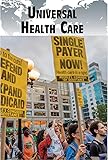Keeping Ethics In Public Health Policy

Major Frameworks in Public Health Ethics
Public health is a branch of healthcare that is far from the clinical setting. The approach to this profession is set to think outside the box and look at healthcare as a whole and not as a single person or place or thing. When one thinks of sickness public health professionals want to prevent not treat. Even in healthcare reform, public health ethics plays a vital role in this new system for the American people.
The approach of a public health professional requires a different way of looking at life and living. One must be a creative thinker in my eyes and see the BIG picture. When people get sick, many will seek medical attention and obtain treatment through non-surgical or surgical treatment. As a public health professional, I will take this step a little further and question the person about where they been in the last week or month, what type of foods have they ingested etc. (Nancy E. Kass, 2001). I am doing this for the 25 people that came in with the same illness and now it is time to find a way to prevent this infection or bug from infecting more people. It will be my duty to educated the community about this infection that is attacking the community either through water or insect bites or contaminated food at a local store. This approach is not limited to infection or injury; public health ethics applies to many things such as healthcare reform act.
The Universal Healthcare Act is in place to provide healthcare coverage for all Americans. This main reason for the reform goes in line with the framework of public health ethics in the protecting and promoting. Under the Universal Healthcare Act, Americans will have access to high quality healthcare that is affordable in the USA (Offices, 1993). Being a positive for the American government, this is what we as America stand for. Public health is set up to help improve the well-being of communities through many approaches such as; safe drinking water vaccination for children or epidemiologic research (Nancy E. Kass, 2001). Through the Universal Healthcare Act, it is following this framework as well for the well-being of the communities. Through comprehensive healthcare benefits, this provides a full range of service including primary care preventative and specialized care needs for the American citizens within this country. But through a 6-step framework for consideration of a policy (Nancy E. Kass, 2001).
There is a formal process that can assist in the implications of people and their rights if there needs to be a change in a system for the better. The Universal Healthcare act has followed these steps and although there are some steps that are not fully answered, this bill is a great start for the future.
1. Identify the programs goal: The universal healthcare act is proposed to give access to high quality healthcare to all Americans.
2. Proposed interventions or Programs: The intervention of this act is to control the cost of healthcare.
3. Identify the burdens: Burden of excessive forms and paperwork that confuses the consumer.
4. Minimized the burdens: Simplify the system for the consumer
5. Fair distribution of benefits and Burdens: Individuals will have to pay their fair share of cost through this program.
6. Determine is the goals are likely to be achieved: With these implications, this bill is likely to achieve the goals as stated (Nancy E. Kass, 2001).
In conclusion, universal healthcare is a great way to assist in the well-being of the community. This is one of the framework of the public health ethics and I feel that through this program we can help with a healthier USA.
References
Nancy E. Kass, S. (2001). An Ethics Framework for Public Health. Retrieved from PUBLIC HEALTH MATTERS : https://www.ncbi.nlm.nih.gov/pmc/articles/PMC1446875/pdf/0911776.pdf
Offices, U. S. (1993). Universal Healthcare Act 1993. Retrieved from GOP : https://www.gpo.gov/fdsys/pkg/BILLS-103hr3600ih/pdf/BILLS-103hr3600ih.pdf













